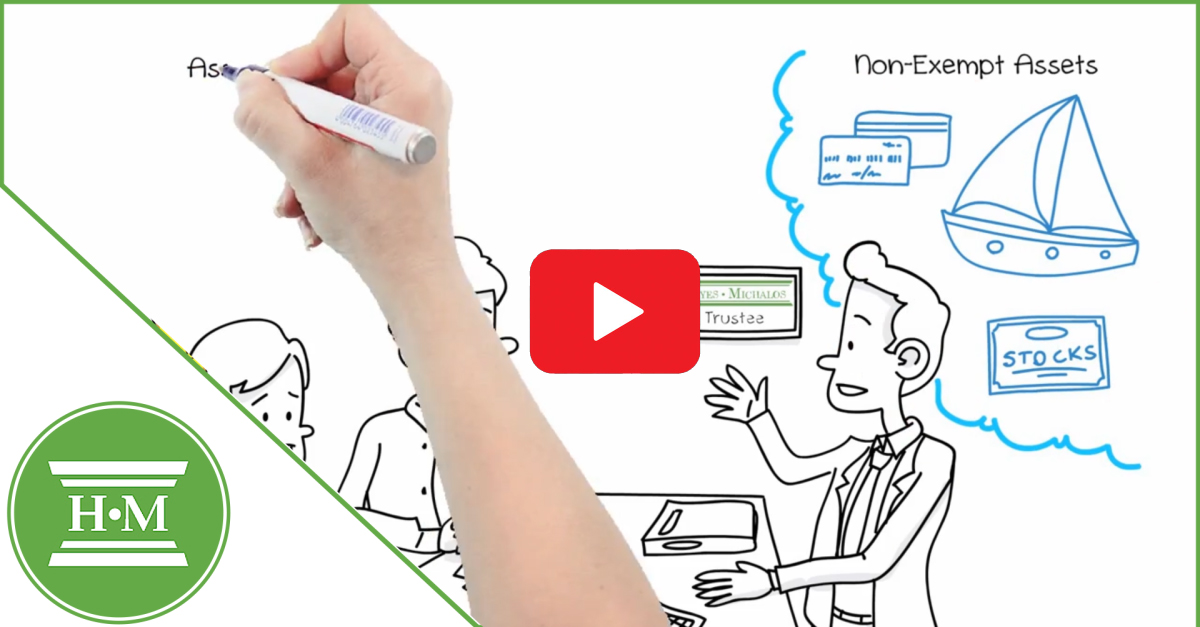
When you declare bankruptcy in Canada, in exchange for the elimination of your debts, you are agreeing to undertake certain responsibilities and duties. Without performing these duties, your discharge from bankruptcy can be delayed or even refused.
Information needed when declaring bankruptcy
At the start of you bankruptcy, you will need to:
Be honest – The first and most important of declaring bankruptcy in Ontario is to be honest with your trustee. Help the trustee better understand your situation by being honest about your circumstances. The more information you provide the trustee, the better advice we can give you with respect to your options and how the bankruptcy process will work for you.
Essential information – you will need to provide details on:
- Your assets
- Your debts
- Your income
- What caused your financial difficulty
- Recent sales and/or transfers of assets
Credit cards – You will be required to stop using your credit cards as all credit cards in your possession (even ones with a zero balance) have to be surrendered to the trustee once you declare bankruptcy.
Paperwork – If the trustee requests them to process your bankruptcy, provide documents, such as; House Appraisals, Mortgage Statements, Vehicle Ownerships, Pay Stubs, Investment Policy Statements, Bank Statements, Tax Returns, Court Documents, Balance Sheets & Profit Statements (if you’re a business owner).
What are your duties during bankruptcy
The most important duties you’ll do during the actual bankruptcy process are:
- Report income – During the time you are bankrupt, you are required to submit an income and expense report to the trustee each month and provide proof of your income by submitting pay stubs or a bank statement. Good budgeting will help you track your income and expenses to avoid overspending in the future.
- Make payments – How much your bankruptcy will cost will be explained to you by your trustee. The amount of surplus income you may be required to pay during the bankruptcy will be calculated by the trustee and will be based on the income reports you submit. The amount you’ll be required to pay can be based on:
- Your income
- Certain types of expenses
- Your family size
- Your assets
- Taxes – A bankruptcy trustee is required to file your tax return for the calendar year you filed the bankruptcy in. Your trustee will explain what information is required from you in order to allow the trustee to file this return on your behalf. Certain tax debts can be included in a bankruptcy, but if you become eligible for a refund, the refund is paid to the bankruptcy estate.
- Counselling – During the bankruptcy you’ll have to attend two credit counselling sessions. The purpose of the counselling session is to provide you with useful information on:
- Money Management.
- Budgeting.
- Shopping / Spending Habits.
- Recognizing the danger signals of getting into debt.
- Credit Re-building.
- Referrals to other types of services / counselling if appropriate.
- Co-operate – Not only is it required, but it is a good idea to co-operate with the trustee in the administration of the bankruptcy estate. Make sure the trustee knows how to contact you by keeping the trustee up to date with changes to your address, phone number and email. It’s also prudent to keep a copy of all your bankruptcy documentation too.
For more information about your duties after declaring bankruptcy in Ontario watch our short video:

When you file bankruptcy, you receive the benefit of protection from your creditors and your debts will be eliminated. However, you do have certain duties to perform to make that happen. When you file, you must surrender to the trustee all non-exempt assets and hand over your credit cards. You get to keep certain personal assets, so you don’t lose everything. During your bankruptcy you will be required to make your payments, attend 2 counselling sessions, report your income and expenses monthly to your trustee, provide necessary tax information. You may also be asked to attend a creditors meeting or examination, although this is very rare. You must also let your trustee know of any big changes in your situation. If you move or your family situation changes, you need to tell your trustee as these affect your bankruptcy. Once all your duties are completed, you will usually be entitled to an automatic discharge, which is what eliminates your debts, in most cases this happens in as little as 9 months. At Hoyes Michalos we always explain the entire process before you file bankruptcy, so you know exactly what’s required of you before you sign.
The following duties are rare and don’t happen in every bankruptcy, however you may also be called upon to:
- Attend a creditors meeting or examination.
- Assist the trustee with the sale/disposal of an asset.
- Inspect the claims of the creditors.
- Attend bankruptcy court.
- Inform the trustee if you believe a creditor is filing a fraudulent claim against you.
If you complete your duties and payments in a timely fashion and there’s no objections raised, you may be eligible to receive an “Automatic” discharge from bankruptcy.
You could be eligible for an automatic discharge:
- First time Bankrupts – After 9 months
- Second time Bankrupts – After 24 months
If you’re considering filing for personal bankruptcy, give our trustees 30 minutes of your time and get started with a personal consultation. We have convenient locations throughout Southern Ontario and we provide expert advice on all your debt management options. Call us at 1-866-747-0660 to ask a question or book an appointment today.





